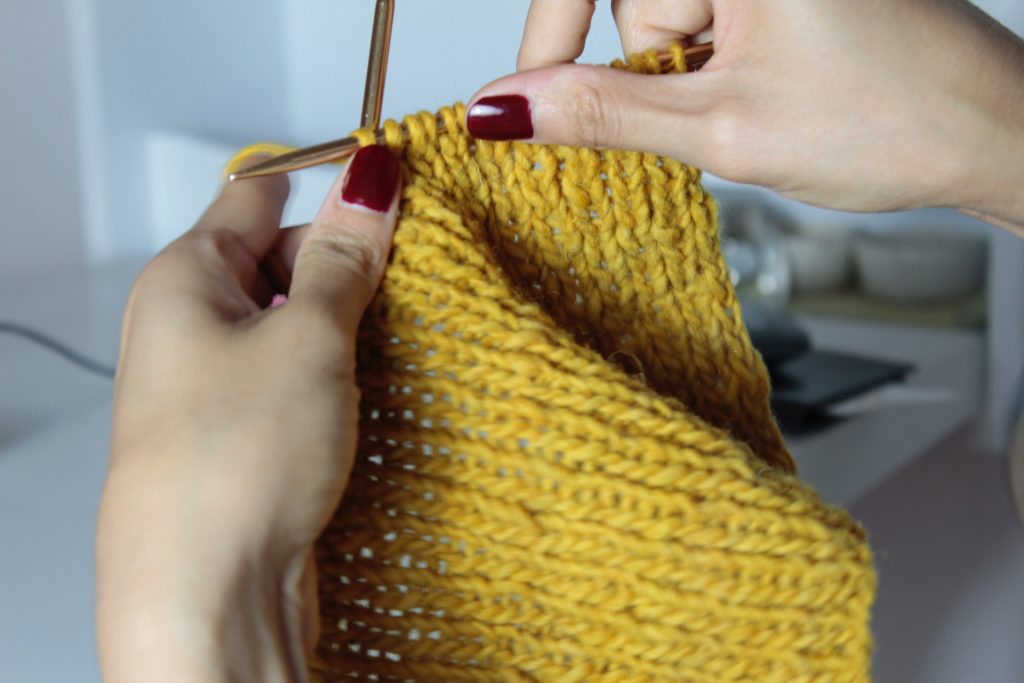This post is also available in Dutch.
We pursue hobbies for the sake of enjoyment, but can they also help buffer us from the stresses of life?
As we look ahead to more months of staying home and foregoing many of our normal social activities, there is a risk that our days will start to blend together. For many who are working from home, the line between work and leisure can become increasingly blurred. How can we keep a balance and bring some novelty and brightness to our days? As someone who has (too) many hobbies, I’ve found myself increasingly turning to my hobbies as the pandemic continues. So, I was curious to learn more about the benefits of hobbies for our well-being.
Hobbies entail activity
Hobbies are defined as enjoyable activities that we pursue voluntarily in our free time. They can be differentiated from interests because hobbies involve an active component, that is, they involve doing something. By this definition, passively watching sports would be an interest, whereas collecting antique sports memorabilia or computing statistics on your favorite players would qualify as a hobby. Other examples of hobbies include painting, blogging, doing yoga, or sewing.
Pursuing enjoyable activities in our leisure time has been linked with many benefits, including more positive emotions and better physical health. Additionally, engaging in creative activities outside of work has been found to lead to improved job performance. However, these studies have been largely correlational in nature: We know that people with hobbies tend to be healthier and happier, but we don’t know whether these benefits are actually caused by having hobbies – maybe instead people who place a greater emphasis on wellness are more likely to have positive experience and more likely to have hobbies. In the next section we will dig deeper and discuss some possible reasons for this link.
How might hobbies lead to positive outcomes?
Creative incubation: Have you ever gotten stuck solving a problem, only to find that the solution came to you suddenly, after you had taken a break from the problem? This phenomenon, in which an “Aha!” moment” comes to us when take a break, is well-documented, and is more likely to happen when we are performing another activity during the break, rather than taking a complete rest. So, if we are struggling with a problem at work or home, engaging in a separate activity (i.e., a hobby) might be more helpful in coming up with a novel or creative solution than continuing to struggle with the problem or completely disengaging our minds with, for example, a TV-binge. Of note, this active incubation phenomenon often works best with activities that have low mental demands and allow our minds to wander, so the benefit might be less relevant to hobbies that are very mentally demanding, like doing a sudoku puzzle.
Self Identity and Social Connections: Other research has explored how leisure activities such as hobbies contribute to our sense of self. People strive to construct identities for themselves, which can help build self-esteem and a sense of competence. Because hobbies and other activities that we do in our spare time are unconstrained – we do them voluntarily and can customize them to best suit us – they are particularly valuable in constructing an identity. For example, someone who sees themselves as an environmentalist may pursue hobbies like gardening, birdwatching, or vegan cooking. As discussed in this chapter, hobbies and identities in and of themselves are not inherently good; however one of their most powerful functions may be bringing together like-minded individuals and creating a sense of community. Thus, another advantage to pursuing hobbies is that they help us make connections with people, as evidenced by the numerous hobby- or interest-focused meetup groups and online communities.
Recovery: The activities that we engage in during our leisure time can help us recover from work-related stress. Creative hobbies may be especially helpful in this regard: Engaging in creative activities during one’s free time has been correlated with three measures of recovery: Control (i.e., the feeling that one is competent and has control over what happens), Mastery (i.e., feeling challenged and learning new skills and competencies), and Relaxation.
Hobbies at all ages
Because they are flexible in terms of time commitment and cost, hobbies can benefit people across the lifespan, although the specific benefits that they offer might differ. In young people, for example, hobbies may help with building skills and a sense of competence: One recent study in youth from disadvantaged backgrounds linked hobbies with a greater feeling of social competence and closer relationships with friends. Another study showed that between the ages of 40-60, a time often filled with work and family commitments, hobbies were a top-ranked source of enjoyment in people’s lives. In newly retired people, having rich leisure activities increased people’s sense of belongingness and contribution to their communities, which in turn was linked with increased life satisfaction. There are additionally possible health benefits: one study showed that older adults who devoted at least one hour per day to hobbies were less likely to develop dementia later.
In light of all the challenges we are facing as individuals and in society overall, taking the time to cultivate a hobby may seem frivolous. Yet the benefits of hobbies pursued for their own sake can help us “fill our cup” so that we feel better and more ready to tackle those challenges.
Further reading
- NY Times Guide provides more information on the benefits of hobbies and also tips on finding the right hobby and making time for your hobby.
- Nature Article: Scientists share their experiences of how hobbies have affected their productivity and creativity.
Author: Rebecca Calcott
Buddy: Martina Aranella
Editor: Mónica Wagner
Translator: Jill Naiijen
Editor Translation: Floortje Bouwkamp
Photo by Ursula Castillo on Unsplash
